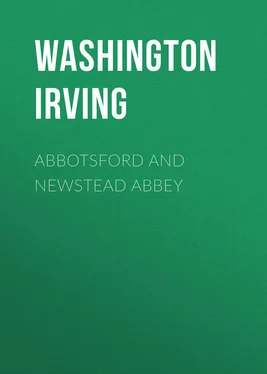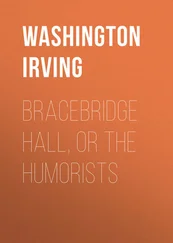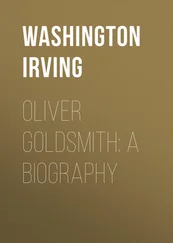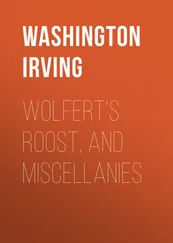Washington Irving - Abbotsford and Newstead Abbey
Здесь есть возможность читать онлайн «Washington Irving - Abbotsford and Newstead Abbey» — ознакомительный отрывок электронной книги совершенно бесплатно, а после прочтения отрывка купить полную версию. В некоторых случаях можно слушать аудио, скачать через торрент в формате fb2 и присутствует краткое содержание. Жанр: foreign_antique, foreign_prose, на английском языке. Описание произведения, (предисловие) а так же отзывы посетителей доступны на портале библиотеки ЛибКат.
- Название:Abbotsford and Newstead Abbey
- Автор:
- Жанр:
- Год:неизвестен
- ISBN:нет данных
- Рейтинг книги:3 / 5. Голосов: 1
-
Избранное:Добавить в избранное
- Отзывы:
-
Ваша оценка:
- 60
- 1
- 2
- 3
- 4
- 5
Abbotsford and Newstead Abbey: краткое содержание, описание и аннотация
Предлагаем к чтению аннотацию, описание, краткое содержание или предисловие (зависит от того, что написал сам автор книги «Abbotsford and Newstead Abbey»). Если вы не нашли необходимую информацию о книге — напишите в комментариях, мы постараемся отыскать её.
Abbotsford and Newstead Abbey — читать онлайн ознакомительный отрывок
Ниже представлен текст книги, разбитый по страницам. Система сохранения места последней прочитанной страницы, позволяет с удобством читать онлайн бесплатно книгу «Abbotsford and Newstead Abbey», без необходимости каждый раз заново искать на чём Вы остановились. Поставьте закладку, и сможете в любой момент перейти на страницу, на которой закончили чтение.
Интервал:
Закладка:
The joke passed harmless and unnoticed by Mrs. Scott, but hit the poor Dominie just as he had raised a cup of tea to his lips, causing a burst of laughter which sent half of the contents about the table. After breakfast, Scott was occupied for some time correcting proof-sheets which he had received by the mail. The novel of Rob Roy, as I have already observed, was at that time in the press, and I supposed them to be the proof-sheets of that work. The authorship of the Waverley novels was still a matter of conjecture and uncertainty; though few doubted their being principally written by Scott. One proof to me of his being the author, was that he never adverted to them. A man so fond of anything Scottish, and anything relating to national history or local legend, could not have been mute respecting such productions, had they been written by another. He was fond of quoting the works of his contemporaries; he was continually reciting scraps of border songs, or relating anecdotes of border story. With respect to his own poems, and their merits, however, he was mute, and while with him I observed a scrupulous silence on the subject.
I may here mention a singular fact, of which I was not aware at the time, that Scott was very reserved with his children respecting his own writings, and was even disinclined to their reading his romantic poems. I learnt this, some time after, from a passage in one of his letters to me, adverting to a set of the American miniature edition of his poems, which, on my return to England, I forwarded to one of the young ladies. "In my hurry," writes he, "I have not thanked you, in Sophia's name, for the kind attention which furnished her with the American volumes. I am not quite sure I can add my own, since you have made her acquainted with much more of papa's folly than she would otherwise have learned; for I have taken special care they should never see any of these things during their earlier years."
To return to the thread of my narrative. When Scott had got through his brief literary occupation, we set out on a ramble. The young ladies started to accompany us, but they had not gone far, when they met a poor old laborer and his distressed family, and turned back to take them to the house, and relieve them.
On passing the bounds of Abbotsford, we came upon a bleak-looking farm, with a forlorn, crazy old manse, or farmhouse, standing in naked desolation. This, however, Scott told me, was an ancient hereditary property called Lauckend, about as valuable as the patrimonial estate of Don Quixote, and which, in like manner, conferred an hereditary dignity upon its proprietor, who was a laird, and, though poor as a rat, prided himself upon his ancient blood, and the standing of his house. He was accordingly called Lauckend, according to the Scottish custom of naming a man after his family estate, but he was more generally known through the country round by the name of Lauckie Long Legs, from the length of his limbs. While Scott was giving this account of him, we saw him at a distance striding along one of his fields, with his plaid fluttering about him, and he seemed well to deserve his appellation, for he looked all legs and tartan.
Lauckie knew nothing of the world beyond his neighborhood. Scott told me that on returning to Abbotsford from his visit to France, immediately after the war, he was called on by his neighbors generally to inquire after foreign parts. Among the number came Lauckie Long Legs and an old brother as ignorant as himself. They had many inquiries to make about the French, whom they seemed to consider some remote and semi-barbarous horde – "And what like are thae barbarians in their own country?" said Lauckie, "can they write? – can they cipher?" He was quite astonished to learn that they were nearly as much advanced in civilization as the gude folks of Abbotsford.
After living for a long time in single blessedness, Lauckie all at once, and not long before my visit to the neighborhood, took it into his head to get married. The neighbors were all surprised; but the family connection, who were as proud as they were poor, were grievously scandalized, for they thought the young woman on whom he had set his mind quite beneath him. It was in vain, however, that they remonstrated on the misalliance he was about to make; he was not to be swayed from his determination. Arraying himself in his best, and saddling a gaunt steed that might have rivalled Rosinante, and placing a pillion behind his saddle, he departed to wed and bring home the humble lassie who was to be made mistress of the venerable hovel of Lauckend, and who lived in a village on the opposite side of the Tweed.
A small event of the kind makes a great stir in a little quiet country neighborhood. The word soon circulated through the village of Melrose, and the cottages in its vicinity, that Lauckie Long Legs had gone over the Tweed to fetch home his bride. All the good folks assembled at the bridge to await his return. Lauckie, however, disappointed them; for he crossed the river at a distant ford, and conveyed his bride safe to his mansion without being perceived. Let me step forward in the course of events, and relate the fate of poor Lauckie, as it was communicated to me a year or two afterward in letter by Scott. From the time of his marriage he had no longer any peace, owing to the constant intermeddling of his relations, who would not permit him to be happy in his own way, but endeavored to set him at variance with his wife. Lauckie refused to credit any of their stories to her disadvantage; but the incessant warfare he had to wage in defence of her good name, wore out both flesh and spirit. His last conflict was with his own brothers, in front of his paternal mansion. A furious scolding match took place between them; Lauckie made a vehement profession of faith in favor of her immaculate honesty, and then fell dead at the threshold of his own door. His person, his character, his name, his story, and his fate, entitled him to be immortalized in one of Scott's novels, and I looked to recognize him in some of the succeeding works from his pen; but I looked in vain.
After passing by the domains of honest Lauckie, Scott pointed out, at a distance, the Eildon stone. There in ancient days stood the Eildon tree, beneath which Thomas the Rhymer, according to popular tradition, dealt forth his prophecies, some of which still exist in antiquated ballads.
Here we turned up a little glen with a small burn or brook whimpering and dashing along it, making an occasional waterfall, and overhung in some places with mountain ash and weeping birch. We are now, said Scott, treading classic, or rather fairy ground. This is the haunted glen of Thomas the Rhymer, where he met with the queen of fairy land, and this the bogle burn, or goblin brook, along which she rode on her dapple-gray palfrey, with silver bells ringing at the bridle.
"Here," said he, pausing, "is Huntley Bank, on which Thomas the Rhymer lay musing and sleeping when he saw, or dreamt he saw, the queen of Elfland:
"'True Thomas lay on Huntlie bank;
A ferlie he spied wi' his e'e;
And there he saw a ladye bright,
Come riding down by the Eildon tree.
"'Her skirt was o' the grass-green silk,
Her mantle o' the velvet fyne;
At ilka tett of her horse's mane
Hung fifty siller bells and nine.'"
Here Scott repeated several of the stanzas and recounted the circumstance of Thomas the Rhymer's interview with the fairy, and his being transported by her to fairy land —
"And til seven years were gone and past,
True Thomas on earth was never seen."
"It's a fine old story," said he, "and might be wrought up into a capital tale."
Scott continued on, leading the way as usual, and limping up the wizard glen, talking as he went, but, as his back was toward me, I could only hear the deep growling tones of his voice, like the low breathing of an organ, without distinguishing the words, until pausing, and turning his face toward me, I found he was reciting some scrap of border minstrelsy about Thomas the Rhymer. This was continually the case in my ramblings with him about this storied neighborhood. His mind was fraught with the traditionary fictions connected with every object around him, and he would breathe it forth as he went, apparently as much for his own gratification as for that of his companion.
Читать дальшеИнтервал:
Закладка:
Похожие книги на «Abbotsford and Newstead Abbey»
Представляем Вашему вниманию похожие книги на «Abbotsford and Newstead Abbey» списком для выбора. Мы отобрали схожую по названию и смыслу литературу в надежде предоставить читателям больше вариантов отыскать новые, интересные, ещё непрочитанные произведения.
Обсуждение, отзывы о книге «Abbotsford and Newstead Abbey» и просто собственные мнения читателей. Оставьте ваши комментарии, напишите, что Вы думаете о произведении, его смысле или главных героях. Укажите что конкретно понравилось, а что нет, и почему Вы так считаете.












